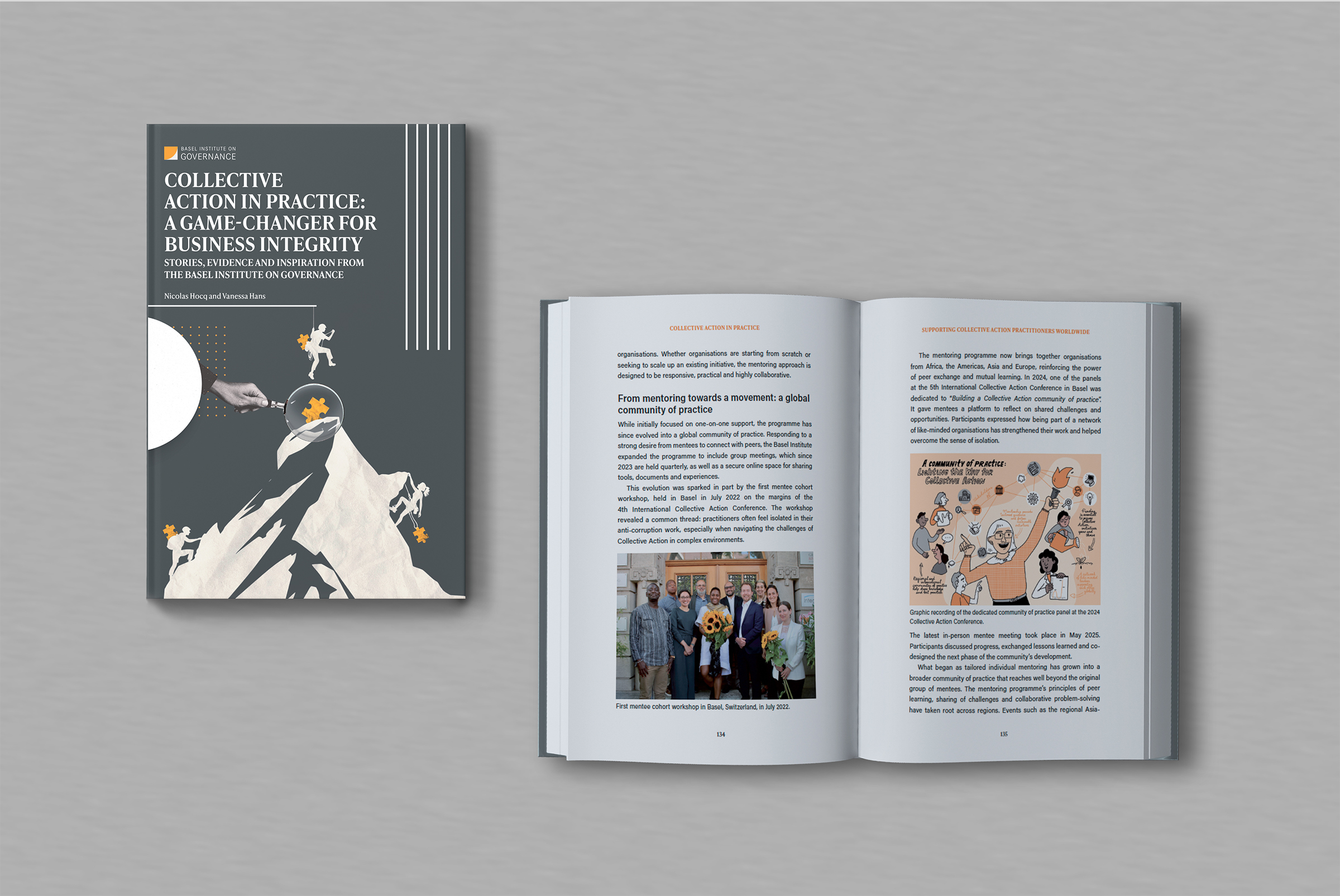New book! Explore the impact of anti-corruption Collective Action

“The scope of integrity and anti-corruption Collective Action initiatives has grown massively over the last 20 or so years. This is because companies, civil society and others have recognised that to tackle extortion and the payment of bribes requires more than an inward-looking ethics and compliance programme to ensure fair competition.”
Gemma Aiolfi, Senior Advisor, Legal and Compliance, Basel Institute on Governance
Over the past two decades, Collective Action has grown from a niche idea to one of the most promising approaches in the global fight against corruption. The concept of sustained multi-stakeholder collaboration is increasingly recognised in international standards, national strategies and corporate practices.
We are excited to announce the release of our new book, Collective Action in practice: a game-changer for business integrity, offering an in-depth reflection on this journey. It explores the growing impact it has on promoting business integrity around the world.
Collective responses to shared challenges
At its core, anti-corruption Collective Action is a simple yet powerful concept: tackling corruption challenges together, rather than alone. The approach brings together diverse stakeholders – primarily businesses, but often also civil society organisations, public sector representatives and/or academic institutions – around common challenges, shared goals and practical solutions.
Showcasing real impact
Drawing on real-life examples, policy milestones and practical experiences from the Basel Institute on Governance and our partners, Collective Action in practice: a game-changer for business integrity presents how diverse actors have been working together to tackle corruption in complex environments.
It aims to capture the living ecosystem of Collective Action as it exists today, its foundations, its progress and the possibilities it continues to offer for the future.
The book is structured in three parts:
Part 1: Advancing the knowledge base – presents the analytical tools and conceptual models that help us make sense of Collective Action in practice. It showcases the B20 Collective Action Hub as a flagship resource, documenting more than 340 initiatives and providing access to hundreds of publications. Part 1 also introduces a newly developed typology that reflects the evolving forms of Collective Action and their distinct roles in shaping business integrity. It also explores how the anti-corruption field intersects with human rights and sustainable development, offering fresh perspectives on risk, responsibility and collaboration.
Part 2: Mainstreaming Collective Action as a norm – illustrates the growing recognition of Collective Action in international standards and policy frameworks. It highlights policy milestones and references in regional and national strategies and legislation. It also showcases the Institute’s International Collective Action Conference series and the Collective Action Awards, which have helped build a common language around Collective Action and inspire action across industries and geographies.
Part 3: Providing hands-on support – focuses on the Basel Institute’s direct support to Collective Action practitioners. It highlights the importance of peer learning and the mentoring programme for civil society organisations, which has grown into a global community of practice. These efforts are grounded in our belief that the success of Collective Action depends not only on policies and frameworks, but also on the people driving change on the ground, often with limited resources and in challenging environments.
Learn more
- Access the individual chapters or the complete book for free on our website.
- Take our free eLearning course on Collective Action Against Corruption.
- Visit the B20 Collective Action Hub.
Collective Action in practice: a game-changer for business integrity was developed and published by the Basel Institute on Governance, with support from the Siemens Integrity Initiative.


